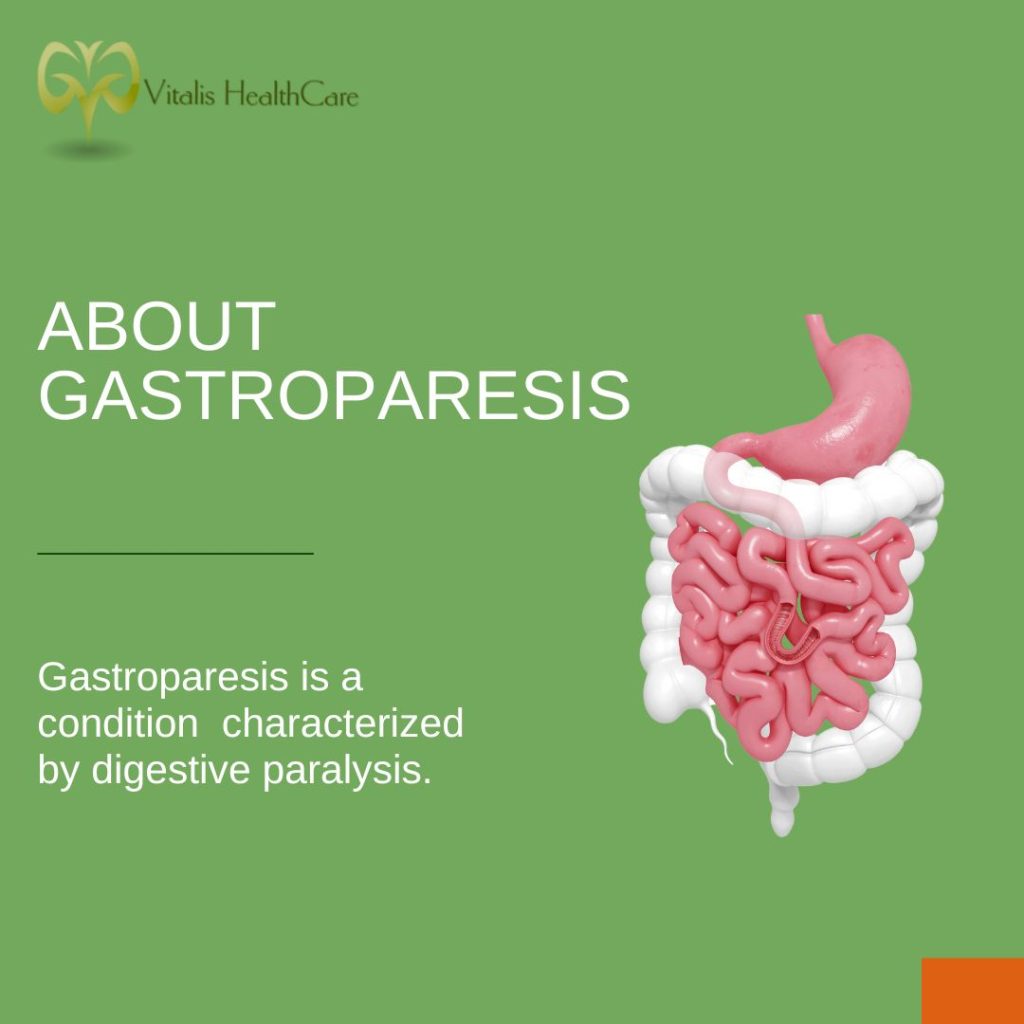Digestion is very essential for breaking down food into the nutrients your body needs which is used for growth, energy and cell repair of your body. Food and drink must be broken down into smaller molecules before the blood can absorb them and carry them to cells throughout the body.
The condition called gastroparesis is a functional disorder that affects the stomach’s muscles and nerves such that they are weak and slow in digesting food and passing it to the intestines. Since food and drink must be broken down into smaller molecules before the blood can absorb and distribute them to cells throughout the body, this leads to food sitting in the stomach for too long, which may lead to severe symptoms such as;
- Constant bloating
- Indigestion
- Feeling full very quickly and or for a long time
- Nausea and vomiting
- Loss of appetite
You might be wondering what could lead to the development of gastroparesis. Well, a few factors commonly linked to the development of this condition includes;
- Diabetes: Diabetes is associated with about 30% of gastroparesis cases. This means that gastroparesis can be triggered by diabetes or be a side effect of gastroparesis.
- Viral Infection: Several viruses have been linked to the cause of gastroparesis. For example, the rotavirus which is known as the most common cause of diarrhoeal diseases amongst children.
- Medication: Medications like progesterone and opiates can slow down the movement of food through the stomach leading to gastroparesis.
- Surgery: If a surgical procedure destroys the vagus nerve it would impair the functions of the stomach muscles leading to gastroparesis.
- Neurological Disorders: Neurological disorders such as parkinson’s disease have been linked to gastroparesis.
The following are some tests undergone in the diagnosis of gastroparesis; An MRI, A CT scan and an Abdominal ultrasound, etcetera. Depending on the cause and severity of gastroparesis, there are various treatment options for this disorder such as;
- Pro Kinetics: These are medications that help stimulate gastrointestinal motility used to treat gastroparesis. Some of them include; metoclopramide, serotonin agonists, dopamine antagonists etc.
- Nutrition: You may need to adjust your diet to accommodate your condition. For example, eating less dietary fibre as they are difficult to digest.It is also helpful to take some dietary supplements.
- Surgery: This is the last resort in treating gastroparesis, it is often used as a last resort after other treatment options have failed. The surgery is used to modify the stomach in order to enable food to pass through it and be digested more easily.
Gastroparesis cases vary in intensity and some cases could lead to being bedridden. If you suspect you may have gastroparesis, please kindly visit a medical professional for an accurate gastroparesis diagnosis.
CONTACT VITALIS HEALTHCARE
At Vitalis HealthCare, our team of certified, experienced, professional caregivers and registered nurses are efficiently trained and committed to providing you with the highest quality compassionate homecare services.
If you or your loved ones are suffering from chronic gastroparesis or any other chronic conditions, and would like to hire a professional and competent caregiver, feel free to reach out to us for further inquiry or book a free consultation through any of our contact details outlined below to get matched with the best service for you.
With us, you are in safe, competent and compassionate hands.
Phone Number: 240.716.6874
Email: info@vitalishealthcare.com
Location: We provide our services in every county in the State of Maryland, United States of America.


